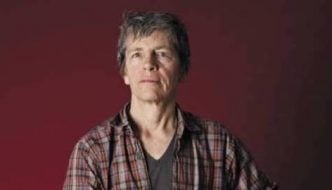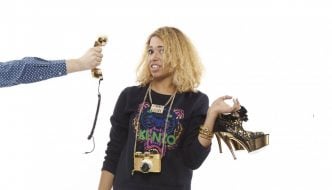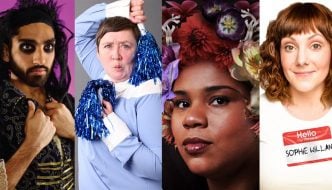Leeds Queer Film Festival: Celebrating New & Alternative LGBTIQ Cinema
September 21, 2014
[Image: Moralist Instruction Musical, shown at the LQQF]
When I first heard about the Leeds Queer Film Festival, I did – in my naivety – pause slightly and wonder what such an interesting event would actually entail. Thankfully, LQFF has an extremely informative website that I quickly took advantage of to educate myself.
Held this year from 10th to 14th July at Wharf Chambers, the annual Leeds Queer Film Festival celebrates new and alternative LGBTIQ cinema from all over the globe. Their aims are clear; to provide an accessible platform for queer independent filmmakers, as well as a social space for queers that is “non-commercial, affordable, safer, inclusive and not-alcohol focused.” Overall, the Festival is about education and awareness of LGBTIQ rights globally.
I was lucky enough to chat with some of the LQFF team to ask them about the Festival and its history, and learn about what it means to people.
The Festival has a four-day programme, over which films are screened that centre on the “experiences and voices of queer and trans, people of colour, sex workers and those with non binary queer experiences.” A breaking down of established binary divisions is a key aspect to the Festival, to emphasise the fluidity and plurality of the queer experience.
LQFF created this space to support those interested and involved in queer culture, where collaboration can develop and be nurtured. The 2014 programme blended short films of just a few minutes with longer features of around 80 minutes, starting from 5pm each day, with activities and talks throughout. This year, the Festival saw Austen Miall from BHA Skyline speak about support services for those affected by HIV; Godwyns Onwuchekwa (founder of Justice for Gay Africans) and Apata Ronnie (lesbian asylum seeker campaigner) discussed the slavery of colonial times and asylum seekers in the UK; as well as a talk from Afrofeminist activist Christina Fonthes, to name just a few.
What emerged from this replete schedule was a festival abundant in opportunities for visitors to learn about their queer past, the queer experiences of others, and what they can do to raise awareness of LGBTIQ rights.
The first LQFF was held in 2005 before the next in 2010. Early festivals were squatted events publicised mainly by word of mouth and organised by different groups of people, attracting a smaller crowd. 2013 and 2014’s Festivals however, have made a name for LQFF, and attendance has grown dramatically.
The inspiration for LQFF stemmed from the history of queer activism in Leeds, stemming from the Gay Liberation Front of the 1970s. Inspired by its preceding parallel movement in the US, the GLF established itself across UK cities, Leeds included. Queer Mutiny North, an anarcha-queer DIY collective, organised the first two LQFFs alongside many other events, as an alternative to the mainstream gay scene. This is something that was continued by others also wanting to showcase queer independent films and provide an inclusive, affordable, fun space with political discussion.

The Queer History Talk: possessions of 4 older members of the gay community who had lived in Leeds at various times & had been involved in elements of activism who for LQFF, discussed their experiences. One member brought a piece of the fence from Greenham Common.
The Festival doesn’t have strict guidelines on films or directors but generally works to include films on under-represented topics, as well as a range of genres. Low budget films and those without distribution or wide publicity are also given a platform, as one of the main aims is to support independent filmmakers. All submissions were watched and decided upon by the LQFF team, to ensure everyone was comfortable with the showings.
LQFF sent me a trailer for the documentary ‘Out Here’, about queer farming – a topic I personally had never considered. Needless to say, it was eye-opening to discover the ways of life and beliefs of people such as those in ‘Out Here’; so different but so appealing to lead.
Watch the trailer for ‘Out Here’:
Among the most popular features of this year’s LQFF, there was a 32 minute documentary on people with disabilities. ‘Sins Invalid’ is a performance project of disabled people, centralizing queer artists and those of colour, making an “unshamed claim to beauty”. ‘Pay It No Mind’, a memoir film about Marsha P. Johnson, a “revolutionary trans activist, Stonewall instigator, Warhol model, drag queen, prostitute, starving actress and Saint” who moved to NYC in 1962, also proved extremely popular.
Watch the trailers for ‘Sins Invalid’ & ‘Pay It No Mind’ below:
Watch the trailer for Pay It No Mind
Visit the website, www.leedsqueerfilmfestival.co.uk, to find out more about the festival, its history and aims.
Phoebe Alexander
Filed under: Film, TV & Tech
Tagged with: LGBT



Comments